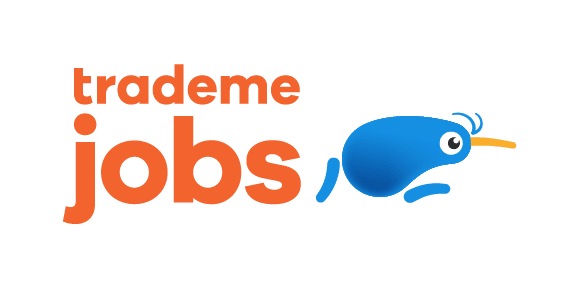They spend their days pulling rubbish out of Auckland’s waterways. Just when they were getting on top of things, Cyclone Gabrielle came along.
Henry Pratt slows his boat, an aluminium profile vessel, to a crawl, then pulls a pair of yellow binoculars to his eyes. As he gazes out over port, he’s barefoot, a little soggy from a recent kayaking adventure, with a bum bag containing his life jacket tied tightly around his waist. Toto’s ‘Africa’ blares over the boat’s stereo system.
Something has sparked the skipper’s Spidey-senses, so he zooms in on the object he’s looking for. Sitting awkwardly on top of mangroves near an estuary close to Karaka Bay, it’s large and white, gleaming in the midday sun. Finally, he works out what it is. “There’s a mattress over there,” says Pratt.
He begins sizing up the tides, the currents and the density of the mangroves, wondering if he can manoeuvre close enough to nab it with a hook and add it to the day’s haul so far: 10 green sacks full of plastic waste, plus large clumps of polystyrene, a rusty tyre and a deflated inflatable boat.
Pratt and deckhand Henry Grinham have been at it since 7am. Together, they’ve scooped three cubic metres of waste out of Auckland’s harbour: bottles, bags, caps, pegs, pens, vape waste, lighters, lollipop sticks and so many discarded balls they could sponsor a school sports day. Last week, they found two vibrators in Milford Creek. How do they end up in the water? “I couldn’t even tell you,” says Pratt.
Most days are like this. “You name it, we find it,” says Pratt. They’ve pulled up chairs and oxygen masks, claimed full-size sex dolls, and on one memorable occasion during a visit to Tiritiri Matangi, bagged a live bomb. Most days, they nab at least one of those plastic Coca Cola bottles with the black bases, the kind that haven’t been in production for 30 years. Where have they been for the past three decades? “Australia?” suggests Pratt. “They could have been around the world.”
It’s nearing lunchtime, and they’re due a break, but the pair can’t help themselves. The mattress is tempting, something to show off to their colleagues back at base. Once you start searching for waste in Auckland’s waterways, you can’t stop. Like it or not, it’s Pratt’s sixth sense. He can’t turn the switch off. “It sucks,” he says. “You go to the beach and you just see it.”
Finally, he decides the mattress is a gamble too risky to take. “We need a king tide to get in there,” he says. He makes a mental note for next time, then pushes the throttle and powers the boat forward. Out in Auckland’s harbour, a Sea Cleaner always has more rubbish to find. “We’ll probably pick it up on a beach over there next week,” says Grinham, pointing to a different bay.
At 22, Grinham is the youngest crew member, and carries an air of optimism. “This is the coolest job,” he says. “You get to spend all day on a boat in different locations.” He’s vegetarian and misses eating fish the most, but doing the kind of work he does means he hasn’t been tempted. Rubbish and fish don’t really mix. “We want to be out of a job, ideally,” he says. What would he do if our water was always clean? “I’d be happy to have an ocean swim.”
Pratt, 25, has been doing this job for three years, and carries himself like the veteran salty sea dog he is. He spends more time on the water than off it, also working as a charter fisherman for hire and delivering fuel to Auckland’s outer islands. To relax after work, he goes out on his own boat. He’s more of a realist than Grinham, and doesn’t think he’ll ever be out of a job. “There’ll always be rubbish to pick up.”
Until recently, the Sea Cleaners felt like they were getting on top of Auckland’s waste woes. Pratt, Grinham and the rest of the crew on the four boats that patrol Auckland’s waterways for rubbish, had been hauling in less than they used to. “We used to pull a mountain of it over the side of the boat every single day,” says Pratt. Lately, sometimes it was just a couple of bags, a testament to the 20-odd years they’ve been doing it, and their carefully calibrated schedule reading tides and swells to find it all.
Then Auckland was flooded, and Cyclone Gabrielle showed up. It unleashed mayhem on the country, with floods and slips around the North Island. All that water means more rubbish being washed down stormwater drains and out into the harbour. In Auckland, that means the Sea Cleaners are suddenly super busy again. “Everything just got washed back out,” says Pratt. They found wheelie bins, deck chairs and a couch floating around. “We pulled 22 cubic meters of rubbish just out of the Viaduct in two days.”
There are days this Sisyphean task feels overwhelming. Sometimes, it gets to Pratt. “You have some tough days,” he admits. “When it’s raining, in winter [it can be rough].” But the job has perks, and it keeps him out on the water as often as possible. When there are kids on the boat, he takes them to feed a group of wild donkeys he found on Waiheke Island. Recently, on a trip to the Coromandel, he saw nine whales. Every day he gets to pick a serene, secluded bay for lunch. “I’d say it’s better than sitting in an office.”
Hayden Smith knows how draining Pratt’s job can be. “It’s horrific,” he says. He started the not-for-profit organisation after a kayaking trip under Auckland Harbour Bridge in 1999. He was pushing his kayak through so much rubbish he felt he had to do something it. “That was something that I’d never seen before,” he says. Smith worked on his proposal for two years, found willing sponsors, and in 2001, Sea Cleaners was born.
Now, Smith’s job is purely promotional. He fronts media requests, meets with local councils and tries to pull in enough annual sponsorship to fund his organisation, because boats, and the fuel required to run them, isn’t cheap. “There’s the lease on the vehicles, the insurance, the maintenance on the boats,” he says. “It’s sort of extraordinary … it just goes on and on.”
It costs $300,000 a year to fund one boat, and he’s got five: four in Auckland, and one in Christchurch. He hopes to launch a full-time service in Northland, and another in Tauranga, soon, if he can find the money. To do that, Smith has another audacious plan to attempt to ease his constant financial concerns: he’s hoping to sell carbon credits for every tonne of plastic waste his teams pull out of the ocean. “If we can pull that off … we’ll have a model in place to give us sustainable funding,” he says.
No one else does what the Sea Cleaners does. So, with a recession looming, and potentially fewer spare dollars for companies to splash around on things like sponsorship, what would happen if it couldn’t keep going? “[The rubbish] just builds up and builds up and builds up and overflows,” says Smith. Auckland’s harbours would quickly return to the state he found them in 20 years ago.
“I’d love to think that we would be out of a job but until all of the producers stop making these plastic products and until everyone knows exactly how to deal with their waste, we’re stuck doing what we’re doing,” says Smith. “There’s a long way to go.”
A day in the life of a Sea Cleaner begins before 7am. After an incredibly strong coffee, Pratt and Grinham play a safety briefing to any volunteers joining them for the day. “In the unlikely event the crew have been abducted by aliens, it is necessary for a volunteer to take the controls,” deadpans Smith over the Knight Rider theme tune. As the sun rises over the city, they head out of Auckland’s downtown marina and towards their destination of choice. The stereo begins blaring again.
The day The Spinoff joins them, they’ve decided to check the mangroves along the Tāmaki River. There, Pratt forces the boat into a narrow inlet and Grinham wades knee deep into the water to begin filling up their green sacks. The mangroves act as a trap, and all kinds of plastic waste builds up over time. “People just take their rubbish down and throw it over the bank,” says Pratt. Once, they found a sack full of VHS cassette tapes. “It all ends up in the water.”
Today, they pull out plastic bags, giant lumps of polystyrene, and countless sports balls out, as well as several of those black-bottomed Coke bottles, before heading towards the Southern motorway underpass. There, they unhook kayaks and head under the bridge to reach an estuary known to build up rubbish over time. Plastic bottles float past as they head towards a bank and begin bagging up jandals and bottles. In the time it takes me to fill one bag, Pratt fills five, navigating his way across loose shingle like a mountain goat.
On the way out, past the mattress they can’t collect, they choose today’s lunch spot: Motukōrea/Browns Island. After a quick scour of the coastline, they decide it’s warm enough for a quick swim. Perks of the job? As he bombs off the side of the boat, Pratt says you have to admit, this is a pretty good one.
Doing this work can’t help but change you, and the things you buy. “Your first ever toothbrush, that’s still out there somewhere. It takes decades to break down,” says Grinham. He’s on the “bamboo toothbrush grind” now, but admits feeling overwhelm at times. “It feels like sometimes we’re the ambulance of the bottom of the hill. You can’t stop it. There’s more people, there’s more consumerism, there’s less care for it.” More awareness would help. “Imagine if Paddy Gower came and made a documentary about us …”
On the way back to Auckland, Pratt continues scouring the coastline. Near the Harbour Bridge, he spots something even bigger than that mattress. Pratt grabs the binoculars, then realises: it’s a shed that’s fallen off someone’s mansion and down a cliff. That’s happened only recently, the ongoing fallout of destruction caused by Cyclone Gabrielle. It’s part of the someone’s home, sitting far closer to Auckland’s harbour than anyone ever intended.
But the boat’s not big enough to handle a shed. It will have to wait. Soon, pieces of it might end up in the mangroves, and they can get it from there. But now it’s time to head back to Auckland – “the worst part of our day,” jokes Pratt – and heap their collection into bins that will then head to the dump. “Clean, green New Zealand?” says Pratt, pushing the throttle forward again. “It ain’t so clean.”



